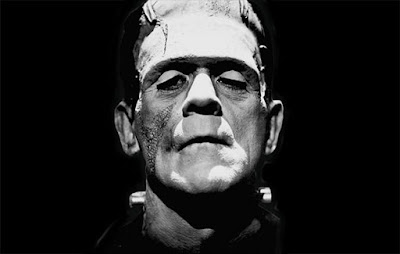|The Gothic| - Mary Shelley's "Frankenstein" - Book review
With a passion towards the topics of horror and the supernatural, I was excited to know our first book for the course of Literature of Horror, Fantasy, and Sci-fi was no other than the classic, gothic book itself: Frankenstein.
The story that follows is nothing more than a representation of the dangers of knowledge. Through its characters (Victor Frankenstein, Robert Walton, and the monster) we go through their personal struggles and we see their mirrored conflict of loneliness and understanding of life as the reason for the decisions they make later on within the story.
It can definitely rub people the wrong way with the word-of-mouth format (We are told things the monster has said through Frankenstein, who is telling the story to Walton, who is writing this to his sister through the letters). Even so, Shelley's emphasis on the characters' emotions and burdens makes it easier to forget about the unusual storytelling. It does not get in the way of the main point of the novel.
Also characterized by its romanticism, intense descriptions of passion and terror move the plot forward. This perfectly helps to show the characters' ambitions: Captain Walton's through his journey to the North Pole and Frankenstein's towards creating something that surpasses mortality. This is also experienced when the characters feel hopeless and melancholy, such as when Walton makes the decision to turn back the ship and when Frankenstein realizes he's created nothing but a "deamon". Whenever the characters go through such intense feelings, the reader can easily detect them through Shelley's excellent use of wordage.
By no means I believe Mary Shelley wants people to stop having an aim towards more knowledge. Instead, I think she meant to provide us with a fitted example of what could happen when we humans are left to believe we're omnipotent and able to create something greater than what we are. In the story, for example, Frankenstein gains an extreme confidence of his own scientific abilities, leading him to create something single-mindedly without any thinking on morality. Now with the mentality of being as powerful as God himself, Frankenstein feels unstoppable and ends up in an unhealthy obsession that leads him to the disrupt of nature. It's good for one to learn, but one shall not disrupt what already exists.
I never thought the novel would bring such feelings of empathy towards me. Let alone a sense of empathy towards the monster by the end of the novel. Due to its gothic characterization, however, it differs from many written works by making the existence of the humankind's nature the horror and the mystery of the novel, leading its readers to question many things about their own humanity.
By the end of the story, you find the bittersweet irony of how the story of a creature can teach so much about our own humanity, leaving behind more than a few questions: Should we support Frankenstein or the monster? Should we really hate the monster for what he's done? Even though his actions can be justified due to the isolation he went through by his creator?
It was an unexpected read and one that made me marvel over the consequences of human curiosity. In the end, it was a pleasant surprise and a nice beginning towards the topic of gothic novels and the use of romanticism to make a message stand out. If someone is interested to read a gothic novel filled with horror and romantic elements of intense emotions, this is definitely the book to kick-start your literary journey.

Comments
Post a Comment